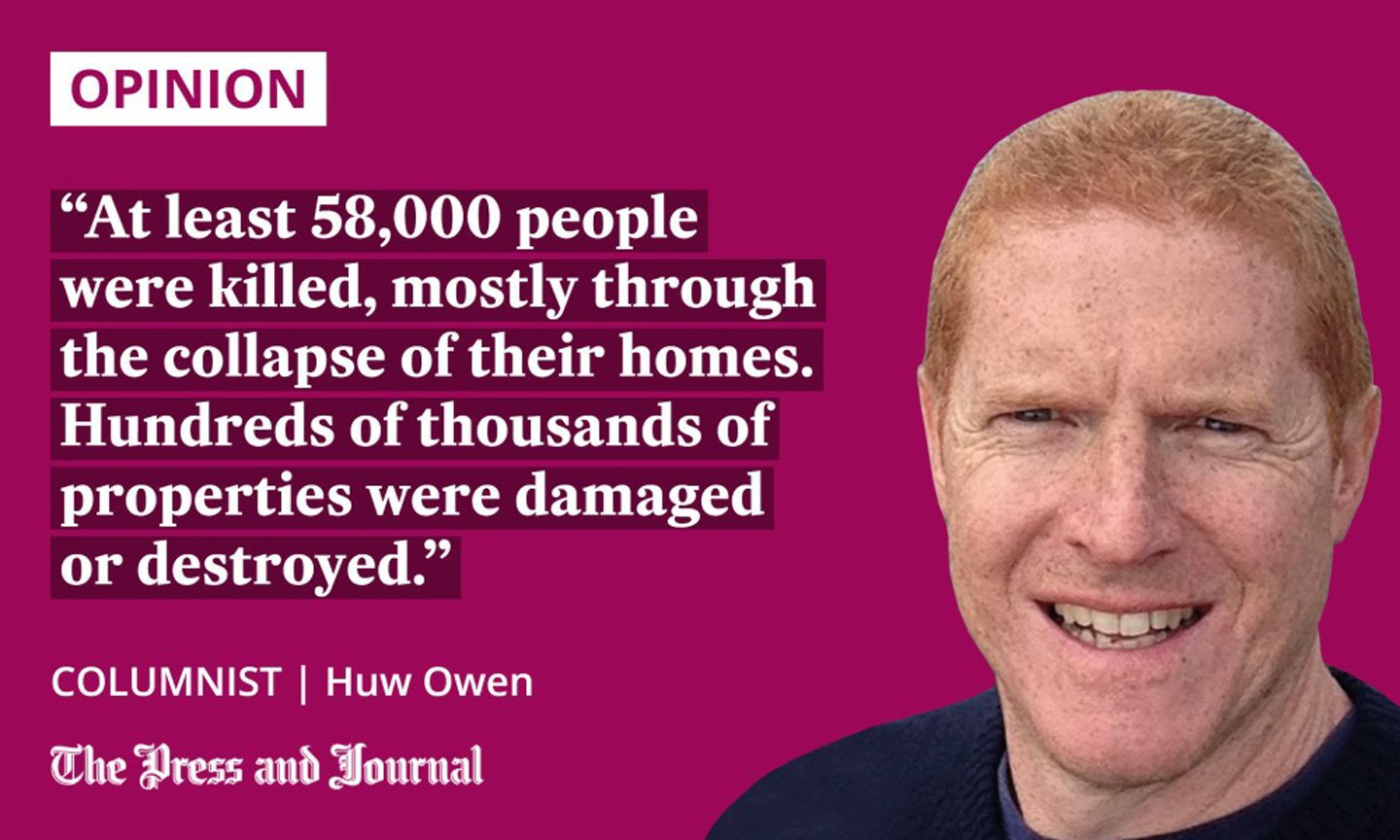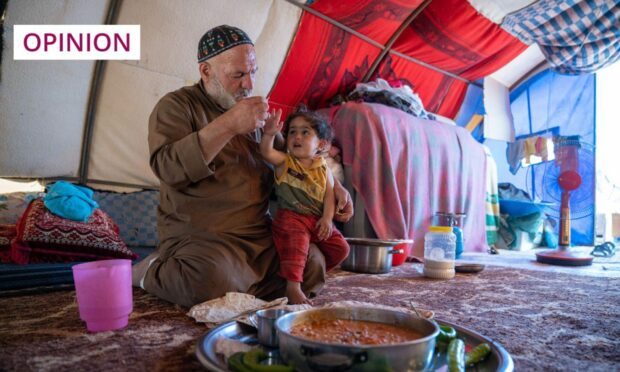The earthquakes lasted moments, but their effects will last for years.
That is reality for communities across southern Turkey and north-west Syria, after two huge earthquakes shattered millions of lives in the region back in February.
The first huge shock came as people slept, the second a few hours later, as the scale of destruction emerged after dawn. Such was the strength and extent of these quakes, if it had happened in Scotland, powerful tremors would have been felt from Ayr to Aberdeen.
At least 58,000 people were killed, mostly through the collapse of their homes. Hundreds of thousands of properties were damaged or destroyed. You will probably remember that the disaster also happened in freezing winter weather, meaning so many people were forced out into the open in temperatures well below zero.
Once again, despite our own rising cost of living and other challenges here, the collective response of the public, including many Press and Journal readers, has been inspiring. Six months on, the Disasters Emergency Committee Appeal has raised over £13 million in Scotland, with the UK fundraising total now passing £150 million – that’s the third biggest response in the DEC’s 60-year history.

Through floods and recent heatwaves that have made the ordeal even tougher, this generosity has allowed DEC member charities and their local partners to help hundreds of thousands of people still homeless, many who have also lost loved ones. In the early stages of response, more than 400,000 people were provided with clean water and 200,000 were given hot meals or vouchers in order to buy their own food.
As the longer recovery starts to take shape, support is now often provided directly in cash or with vouchers, which is increasingly the most cost-effective way of delivering relief. It reduces transport and administration costs, it can help local businesses and, crucially, it gives recipients more dignity and agency in deciding for themselves how best to meet their needs and those of their family. Nearly half of the money distributed so far has been used in this way.
Families just like yours have lost everything
The way we work and what that can mean to families just like ours can sometimes seem a bit abstract, so let me share Khalil’s story.
Like millions of people in north-west Syria, Khalil, had already had to endure 10 years of civil war before the earthquakes. His building collapsed in seconds, killing many of his neighbours and his wife. He managed to scramble out with his two daughters, who are three and two, and then joined many people sleeping in the street until tents and other help arrived.
He has since been helped by DEC member Age International UK, which provided the equivalent of around £195 to help towards the cost of food, as well as milk and nappies for the children.
“It’s very lonely and exhausting, being a single father to two young children,” said Khalil. “I thank God that we’re still alive. I worry about what would happen if I died. Who would take care of my daughters? That’s what scares me the most.
“I hope our situation changes for the better, and that I can raise my children to go to school and get educated.”
Donating is a simple yet powerful act of compassion
Whilst the news agenda moves on fast, DEC charities will continue their work in the region for at least another 18 months. They will help maintain hygiene and sanitation, to reduce the risk of the spread of deadly diseases like cholera.
They will run mobile physiotherapy clinics, helping people recover from their injuries. And, they will provide trauma counselling to children to help them make sense of what has happened to them and try to return to a more normal childhood – all vital, life changing assistance.
Khalil and his girls, along with so many others, still face a very long road to recovery – to some kind of normality after this seismic shock. However, we know from a recent visit to the region that the help they have received with your support is hugely appreciated and gives them hope. For your donation, a simple yet powerful act of compassion and solidarity, we say thank you.
- Donations to the DEC Turkey Syria Earthquake Appeal can be made at dec.org.uk
Huw Owen is external relations manager in Scotland for the Disasters Emergency Committee

